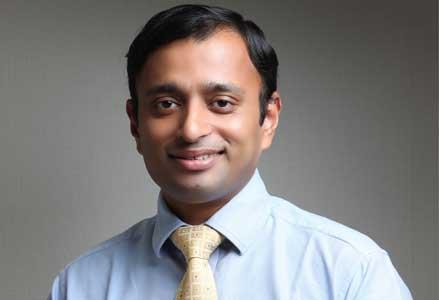|
|

|
|

| Article / Health / General ( Health ) | Post Comments |
Living on through Organ Donation |
|
| By : Aster Medcity , Kochi , India 14.8.2017 Phone:0484 669 9999 Mail Now | |
| Kuttisahib Road, Near Kothad Bridge, South Chittoor, Cheranalloor, Kochi, Kerala 682027 | |
 Dr. Mathew JacobLead Consultant HpB / Multi Organ TransplantIntegrated Liver CareAster Medcity, Kochi Organ Donation Day is observed on August 13th to motivate people to pledge to donate organs after death and to spread awareness about the importance of organ donation. Lack of awareness leads to many myths and fears in people’s minds about organ donation. Even the Gita tells us “avyakto 'yam acintyo 'yam avikaryo 'yam ucyate tasmad
evam viditvainam The importance of organ donation cannot be overstated. Organ transplantation is the only treatment for terminal organ disease that cannot be treated with medicines or conventional surgical treatment, whether it has occurred due to illness or injury. While cornea and kidney transplants are the most common transplants, heart, liver, lung, pancreas and small intestine can also be transplanted. But there is a wide gap between the requirement and availability of organs for transplant due to lack of knowledge about organ donation and transplant. Organ donors can be living donors or cadaver donors (deceased donors). Anyone, regardless of age, race or gender can become an organ and tissue donor. If he/she is under the age of 18 years, then the consent of parent or legal guardian is essential. Medical suitability for donation is determined at the time of death. Living donors can donate only few organs, namely one of their two kidneys, a portion of pancreas and a part of liver. On the other hand, in the case of brain-death, all the organs including the heart can be donated. Eye donations are used for corneal transplants or grafts which help to
provide or restore vision in patients with scarred corneas due to injury or
disease. Skin donations are used in the treatment of patients with burns. Organs
like heart, kidney and liver are removed by doctors and transported in special containers for transplant. These are then transplanted on to the patients who are suffering from end stage terminal diseases. Time is of the essence as transplants. Eye donation needs to be done within 4-5 hours of death and skin donation within 24 hours at the maximum. Donation after brain death must be done very soon to ensure the organs remain suitable for transplantation. Hence, they can only be donated by someone who has died in the hospital and has been certified as dead while on a ventilator in a hospital intensive care unit as a result of a hemorrhage, major accident with head injury or stroke. After the family consent is obtained, the organ procurement organization (In Kerala this is a government body called KNOS (Kerala Network for Organ Sharing) and the zonal transplantation coordination committee are informed. Consent from the legal authorities is obtained. Each state has a Transplant Coordination Center which maintains a computerized waiting list, blood group wise, for each organ, and the organ distribution is done as per the state priority criteria. In short organ is allocated to those who need it most (sickest first) in an open impartial way. Many families fear unnecessarily that the funeral will be delayed, or that
that the body will be disfigured. While there may be some delay due to the
process of removing the donated organs, this is nothing compared to the lives
that the organ donation will help save. As to disfigurement, this is not true.
Organs are removed with utmost care and with respect for the deceased donor. The
dignity of the donor is always foremost during the organ donation process. |
|